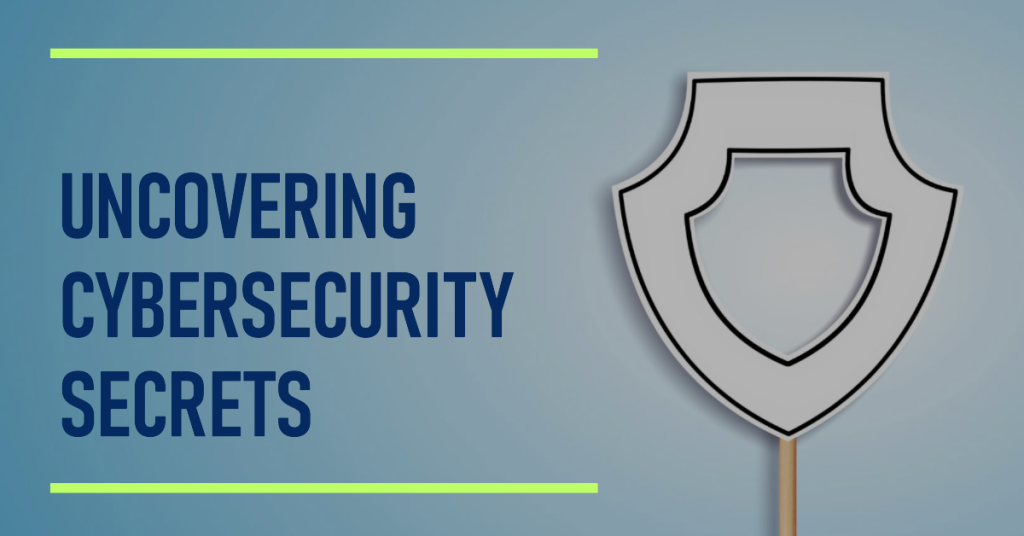In our increasingly digital world, where data flows freely and technology dominates every aspect of our lives, the importance of cybersecurity cannot be overstated. It’s not just about protecting your personal information; it’s about safeguarding the very fabric of our interconnected society. So, let’s dive into the world of cybersecurity, demystify some of its secrets, and understand why it’s essential for everyone.
Understanding the Basics
At its core, cybersecurity is all about protecting computer systems, networks, and data from theft, damage, or unauthorized access. This might seem like a complex task reserved for IT experts, but the fundamental principles are accessible to anyone. Strong, unique passwords, regular software updates, and basic knowledge of common threats like phishing emails can go a long way in safeguarding your digital life. Think of these as the locks on your digital doors, and keeping them secure is your first line of defense.
The Ever-Evolving Threat Landscape
Cybersecurity is a dynamic field because the threat landscape is constantly evolving, according to expert Anne Neuberger. Hackers and cybercriminals are always finding new ways to exploit vulnerabilities and gain access to sensitive information. This means that cybersecurity professionals must stay one step ahead, continually updating their knowledge and defenses to counter the latest threats. For individuals, this underscores the importance of staying informed about potential risks and adapting their online behaviors accordingly.
The Role of Encryption
One of the cornerstones of cybersecurity is encryption. At its essence, encryption is the process of converting data into a code to prevent unauthorized access. Think of it as a secret language that only the intended recipient can understand. It’s used in everything from online banking to secure messaging apps. When you see that little padlock symbol in your web browser’s address bar, it means your connection is encrypted, and your data is secure as it travels over the internet. This powerful tool ensures that even if cybercriminals intercept your data, they won’t be able to decipher it without the encryption key.
The Human Factor
While technology plays a crucial role in cybersecurity, it’s essential not to overlook the human factor. In many cases, human error is the weakest link in the security chain. Phishing attacks, for example, prey on human gullibility by tricking individuals into revealing sensitive information or clicking on malicious links. Social engineering tactics, like pretending to be a trusted colleague or IT support, can be surprisingly effective. This highlights the need for ongoing education and awareness. Cybersecurity isn’t just about the tools and technology; it’s also about cultivating a security-conscious mindset.
The Business Perspective
Cybersecurity isn’t just a concern for individuals; it’s a top priority for businesses as well. A data breach can result in severe financial losses, damage to reputation, and legal consequences. As a result, organizations invest heavily in cybersecurity measures. They employ experts to build robust defense systems, conduct regular security audits, and establish protocols for responding to incidents. In today’s interconnected world, businesses must not only protect their own data but also the data entrusted to them by their customers.
The Constant Battle
Cybersecurity is an ongoing battle, and it’s one that we can never afford to let our guard down against. Cybercriminals are persistent and creative, always seeking new vulnerabilities to exploit. This means that the work of cybersecurity professionals is never done. They must remain vigilant, updating and adapting their defenses to stay ahead of the ever-evolving threats. It’s a dynamic field that demands constant attention and innovation.
Collaboration and Responsibility
In the end, cybersecurity is not just about individual actions or business efforts; it’s a collective responsibility. Governments, private sector organizations, and individuals all have roles to play in creating a secure digital environment. International cooperation is also crucial, as cyber threats often transcend borders. By sharing information, best practices, and technology, we can collectively build a stronger defense against cyber threats. As we continue to unlock the secrets of cybersecurity, let’s remember that our digital world’s security is a shared endeavor, and together, we can navigate its challenges and ensure a safer online future for all.
Final thoughts
Understanding the secrets of cybersecurity is not a luxury but a necessity. From individuals protecting their personal information to businesses safeguarding their operations, the principles of cybersecurity are universal. It’s about recognizing the ever-evolving threat landscape, the importance of encryption, and the critical role of human awareness and vigilance. By staying informed and adopting best practices, we can all play a part in making our digital world safer and more secure. Remember, cybersecurity is not just a responsibility for experts; it’s a shared responsibility for us all.
